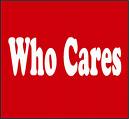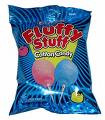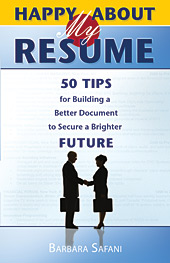 Today at the National Career Job Fair in New York City, someone showed me a resume and asked for a critique. The resume had absolutely no chronology; no company names, position titles, or dates of employment. When I asked her why this information was omitted, she replied by saying, “I don’t need to include that information; it’s a functional resume.”
Today at the National Career Job Fair in New York City, someone showed me a resume and asked for a critique. The resume had absolutely no chronology; no company names, position titles, or dates of employment. When I asked her why this information was omitted, she replied by saying, “I don’t need to include that information; it’s a functional resume.”
Many years ago, someone came up with the idea of the functional resume; a resume that merely focused on functional skills and eliminated all references to employment experience. The logic was that this would better display a candidate’s transferable functional skills and eliminate the need to explain away problems in the person’s chronology such as employment gaps or experience that wasn’t related to the job target.
But at its core, the functional resume is truly dysfunctional. Recruiters and hiring managers are immediately suspect of resumes without a chronology and few will even bother to review them. Most will draw their own conclusions about why certain information was omitted and you will never get a chance to explain your strategy. So by eliminating the information you were trying to hide, you have actually called more attention to the fact that it is missing.
So what do you do if you are transitioning careers or have an employment gap that would be glaring on a chronological resume? Go for what’s called a combination format. Use functional categories to show your relevant skills and accomplishments but supplement that with an abbreviated chronology that shows company names, job titles, and employment dates. Whenever possible, explain employment gaps right on the resume with brief explanations such as “company downsized” or “left position to care for a sick parent.” It is always better to be transparent because it reduces the liklihood that the reader will draw their own conclusions from your omissions.
Also, keep in mind, that if you are focusing on your functional skills because you are making a career transition, a resume alone may not be enough to validate that transition. Everyone in a job search needs supporters, but career changers and people with questionable chronologies need them even more. A piece of paper can’t always explain away all the questions a hiring authority may have about your qualifications for a job where you have limited experience. Career changers build that type of trust by asking people close to the decision makers to make introductions and advocate for their candidacy. Once that is achieved, the resume can be used to help support their value proposition.
So if you’ve been leaning towards creating a functional resume to position yourself in front of a potential employer, you are probably headed in the wrong direction. Create a combination format and build a network of “cheerleaders” that can help you gain the right introductions to move towards your new career path.
 I recently reviewed resumes at the National Career Fair in New York City and I was amazed at the number of people that use very complex and hard to remember email addresses on their resumes. The addresses reminded me of the Tommy Tutone 80s hit Jenny about a boy who falls for a girl named Jenny and keeps repeating her phone number (probably in an effort to remember it).
I recently reviewed resumes at the National Career Fair in New York City and I was amazed at the number of people that use very complex and hard to remember email addresses on their resumes. The addresses reminded me of the Tommy Tutone 80s hit Jenny about a boy who falls for a girl named Jenny and keeps repeating her phone number (probably in an effort to remember it). private email account through gmail and I’m exploring all my Google account has to offer. They have some great templates for time management, scheduling, and budgeting…for all the things I need to organize and no one else needs to see.
private email account through gmail and I’m exploring all my Google account has to offer. They have some great templates for time management, scheduling, and budgeting…for all the things I need to organize and no one else needs to see. Today at the
Today at the 

 Yesterday I was interviewed by
Yesterday I was interviewed by 



